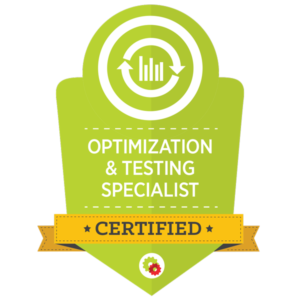Keywords are a hot topic in SEO, and one that is often misunderstood or misused by website owners trying to optimize their websites. In this post we’ll discuss what keywords are, why they matter so much for search engines like Google, and how you can use them effectively on your own website.
What is a keyword and why do they matter?
Let’s start with the basics: What exactly IS a keyword? A ‘keyword’ technically refers to any word or phrase that people type into a search bar when looking for something online (for example: “computer parts near me”). However it is more commonly used as another term for ‘search terms’. These might be generic words such as ‘cat toy’ which thousands of people may enter into a search engine – or they can be more specific, such as ‘cat toy with bell’. The difference between these two searches? While both would likely bring up the same results (i.e. links to relevant websites), the second one is much more targeted and therefore has a higher chance of actually leading someone through to your website!
The more targeted your keywords are, the higher you will rank in search results for that term. This is because Google looks at each website’s ‘keyword density’ – how many times a certain keyword appears on the page compared to other words (in relation to its relevance). So if someone types “cat toy with bell” into their search bar and you have this phrase somewhere within your content multiple times, when they visit your result it has already told them three important things:
- You know what product or service they are looking for;
- They can trust that you actually do offer these products/services; And most importantly of all…
- You were found by Google when people searched for that exact thing!
Now let’s say instead that you had typed “cat toy” into Google. While your website may still have appeared on the first page of results, it is likely to be much further down – because although this search term has more traffic (more people are searching for cat toys each day), there are many other websites targeting this keyword too!
So what can we learn from all of this? To summarise: Your website needs targeted keywords in order to appear high up within a list of search engine results; The higher you rank, the greater chance you will have of being found by new visitors who are looking specifically for your product or service; And once they visit your site and see how well organized it is, as well as read through helpful blog posts they will be much more likely to turn into long-term customers!
Now that you know why keywords matter, let’s go over how to use them effectively. To start with…
How to use keywords effectively
Do I need lots of different keywords, or just one main keyword?
There are no hard-and-fast rules in regards to this question because there are so many variables at play when it comes to choosing which words people use in their online searches every day. However generally speaking you should try and target multiple related terms rather than focusing all of your efforts on just one main keyword. This is because Google tends to favour websites that offer information about several different things, rather than those who merely focus on a single service or product (this rule does not apply for pages that are meant specifically for selling items).
For example: let’s say you have an online store selling various types of dog food. If your homepage is all about ‘premium dry food’ and doesn’t mention any other type of pet food then it will only be found by people looking for this specific term – whereas if you include words such as ‘dog treats’ ‘wet dog food’ etc., more visitors could potentially find your site from their searches!
To sum up… A website with multiple pages that are all about different keywords will be more likely to get picked up by Google for these searches; And then rank higher in search results when people use those exact words.
Do I need to make my keyword(s) part of my blog post title?
As mentioned above, your main keyword should appear several times throughout your content but it is not necessary to include this term within your post’s title. It can help with SEO if you do so though – especially if there is a long and descriptive headline which tells searchers exactly what they can expect from reading the rest of the article! What is most important here however, is making sure that any hyperlinks at the end of each blog post are targeted at your main keyword. So if you write a blog about ‘dog treats’ for example, the link that takes readers to other pages on your site should all be relevant phrases such as ‘best dog food’ or ‘buy wet dog food’.
If I have lots of keywords do they need to appear in separate blog posts?
It is not necessary to split up each individual term across multiple webpages but it can help with SEO if you do so. This is because Google will then see your different articles as being more comprehensive and useful – which increases their chance of ranking higher within search results! Plus by dividing these words between several pieces of content it prevents people from becoming bored reading too much information on just one page (which is much more likely to happen if you have several related keywords all appearing in one blog post!)
How do I know which words are the most effective?
The best way of finding out what people search for online, and whether or not your chosen keywords will be picked up by Google, is by using a paid-for tool such as SEMrush. This provides highly accurate data about phrases that other websites target (including competitors), how many times these searches are performed every month, and where each website ranks within results pages. You can then use this information to help choose which terms should appear on your own site!
Where do my chosen keyword(s) fit within my content?
Your main keyword needs to make regular appearances throughout an article however it is not necessary to include it every time you mention a related term. For example: if I was writing about ‘dog treats’, one of my sentences could read ‘If your dog loves sweet things then making these tasty treats is a great way to keep them entertained for hours!’ This tells Google that this page covers topics such as ‘best dog food’, but also the more specific word ‘sweet’.
Do I need an SEO plugin or tool?
A well written blog post does require keywords in order to appeal to search engines; however there are WordPress plugins which can help with optimizing posts automatically (such as SEOPress or Yoast). These tools check through all webpages and will suggest improvements to your content to make it clear the keywords are an important part of the post.
Are there any downsides to using too many keywords?
Google doesn’t like seeing sites use ‘keyword stuffing’ – which is when a webpage contains excessive amounts of specific phrases in order to rank higher within results pages. This strategy was popular years ago but will now be ignored by search engines; plus if you apply this tactic then your content may well seem unnatural or read as spam (which could lead people leaving your site much quicker than usual!)
How many times should I use my main term within each post?
It depends on how much competing websites target that word! Ideally you will want it appearing at least once every few paragraphs however if the competition get more than 15-20% of their posts mentioning this phrase then there is no point in aiming for a higher number just to be seen as more valuable.
How does Google use keywords?
When people perform searches, they will type their phrases into the search bar and these are then matched up with words from webpages across the internet – including your website! Google ranks pages based on how relevant each one appears within results so it is important to include popular terms if you want your site being found by visitors.
In summary
Keywords are the very foundation of SEO, and if you want to achieve high rankings in search engine results pages (SERPs), then it’s essential that your keywords work for you.
If you would like to read more content on the subject of keywords and how they can help your website, please feel free to follow our social media outlets linked below. You may also want to check out other related articles that we have written on the topics of SEO and Keywords.
We also offer a range of Done For You SEO services and can also create SEO optimised content for your website. Please contact us for details.












